Strength, Courage and Flying Skirts - Highland Games in Scotland
Categories: Europe | History | Sport
By Pictolic https://pictolic.com/article/strength-courage-and-flying-skirts-highland-games-in-scotland.htmlThe Scottish Highland Games became an annual event during the Victorian period. Tests of strength and courage have been held on Scottish lands since time immemorial, only the goals of the competitions were different - in the Middle Ages, the king chose a royal messenger among the most enduring men, and since the last century, the Games have been held rather for sports excitement. Despite centuries of history, the competition has changed little, at least as far as the tests themselves are concerned.
To this day, the favorite kind of all competitions for the Scots is the throwing of a log, which is far from being on the shoulder for everyone, even for real strong men. The thrower must lift a long and smooth log, which can be up to 6 meters long and weigh about 80 kg (there is no single standard for a projectile). You need to lift it with two hands, folded into a kind of bowl, and lean the log vertically against your shoulder. Then the participant must, having run up a little, throw the log with all his strength so that it turns over in the air and falls to the opposite end. That is, in addition to great strength, the thrower must also have a certain amount of dexterity.
We present you a selection of black and white photographs from the Scottish Highland Games of the last century. Yes, all the athletes, of course, wore the national Scottish dress kilt, and, admittedly, we understand why - it seems to be very convenient.
(Total 29 photos)
Source: mashable.com
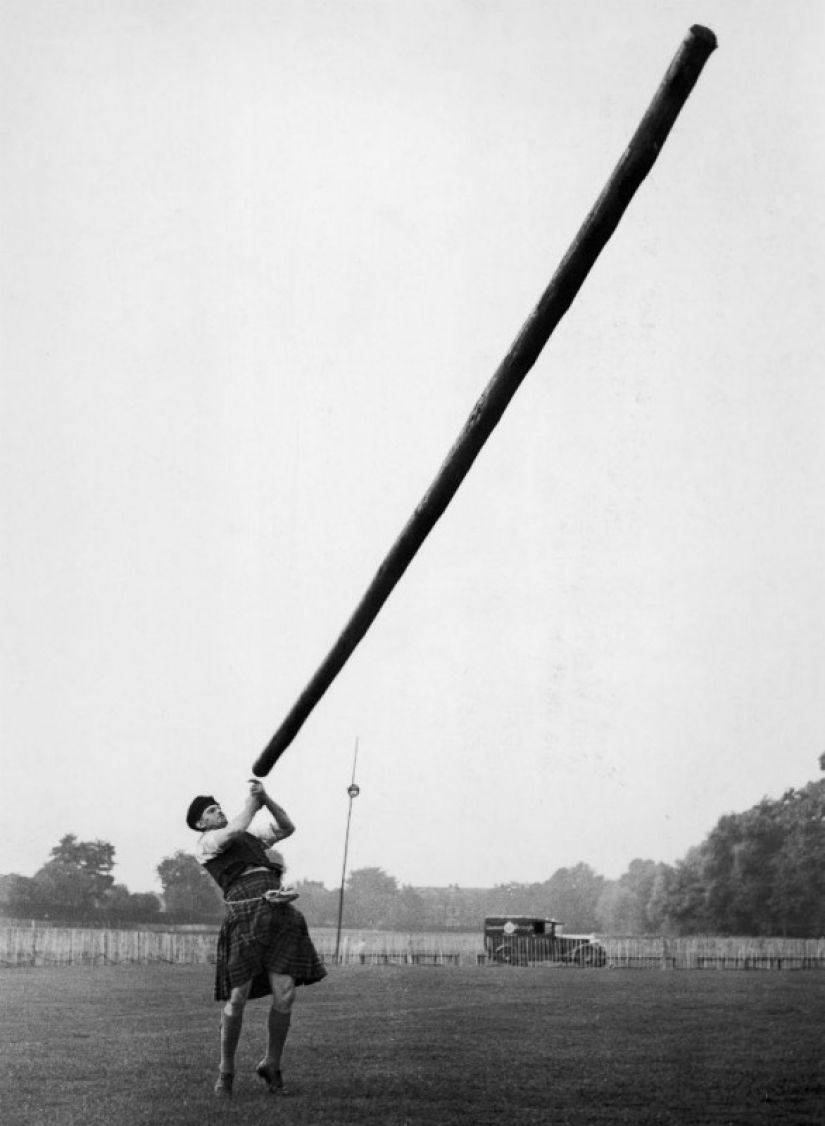
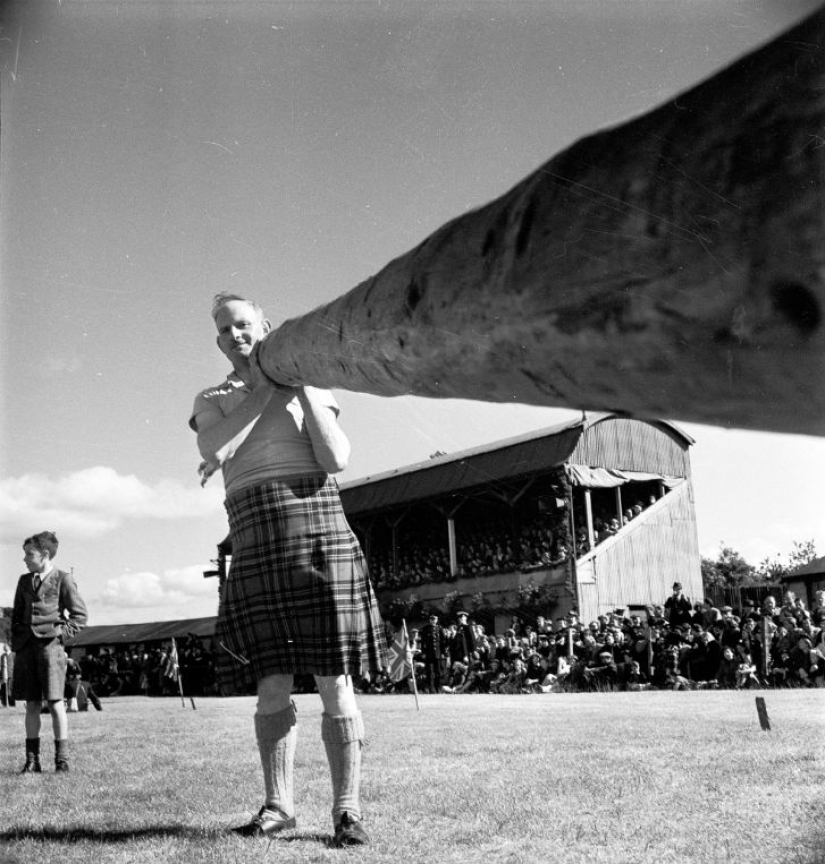
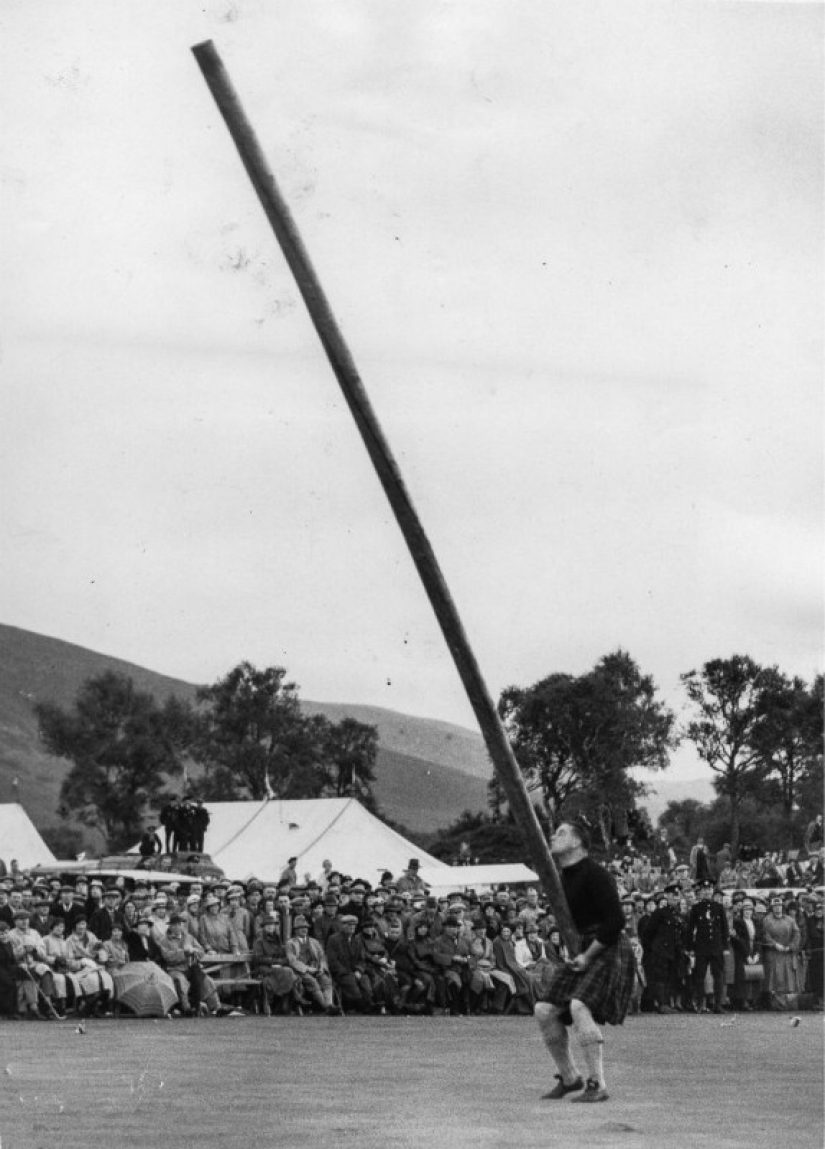
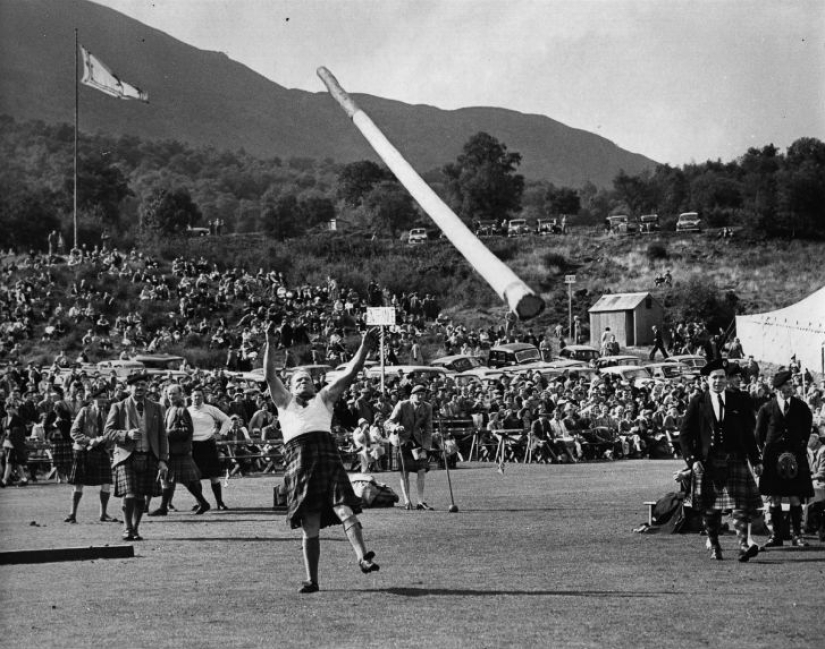
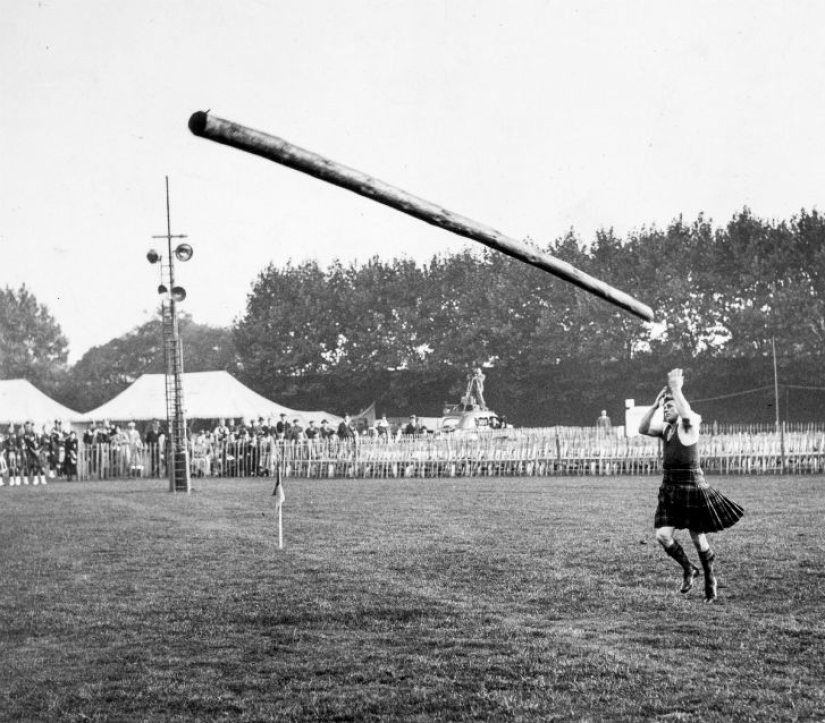
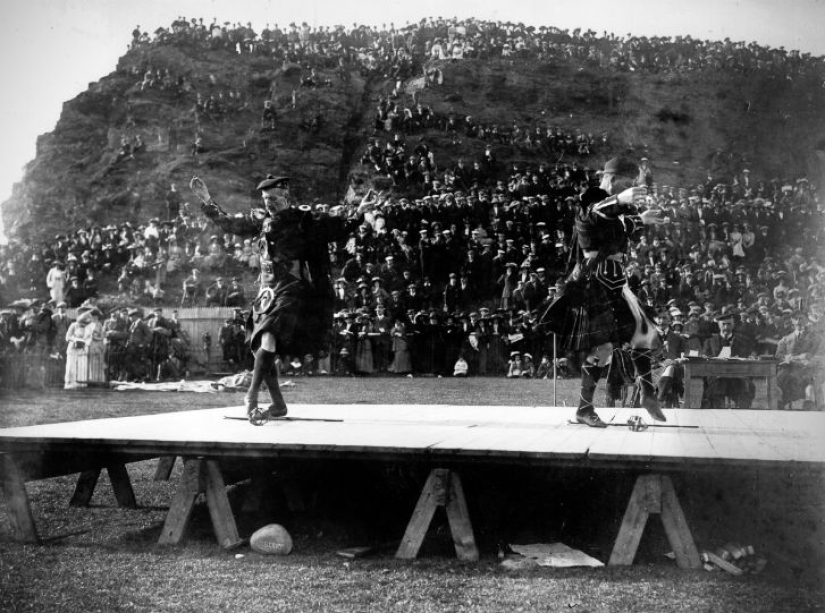
In addition to displaying extraordinary strength, speed and agility, the Games are also a symbol of Scottish and Celtic culture. Pictured is a traditional Scottish sword dance, 1912.
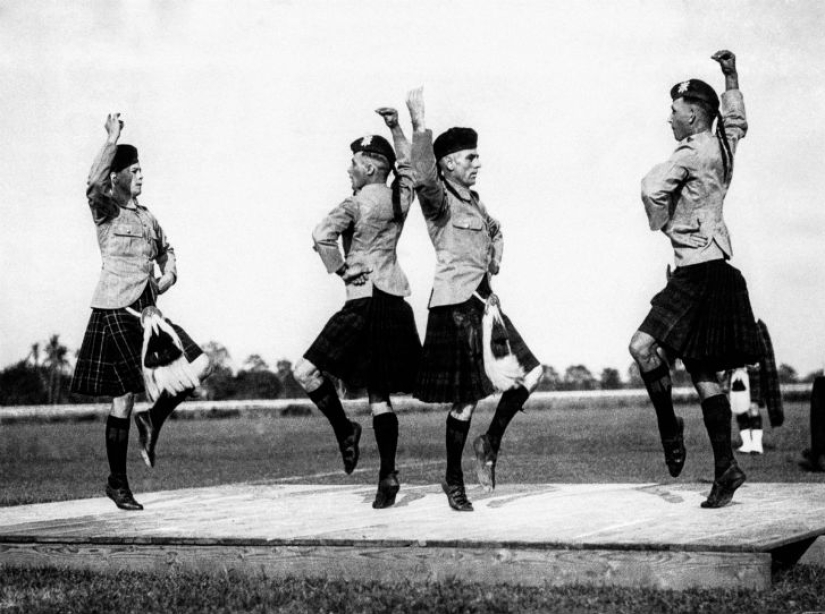
Due to the fact that not all Scots live in Scotland, the Highland Games began to be held all over the world, from Europe and North America to New Zealand and Brazil. The photo shows a traditional Scottish dance at the Games in Calcutta, 1900.
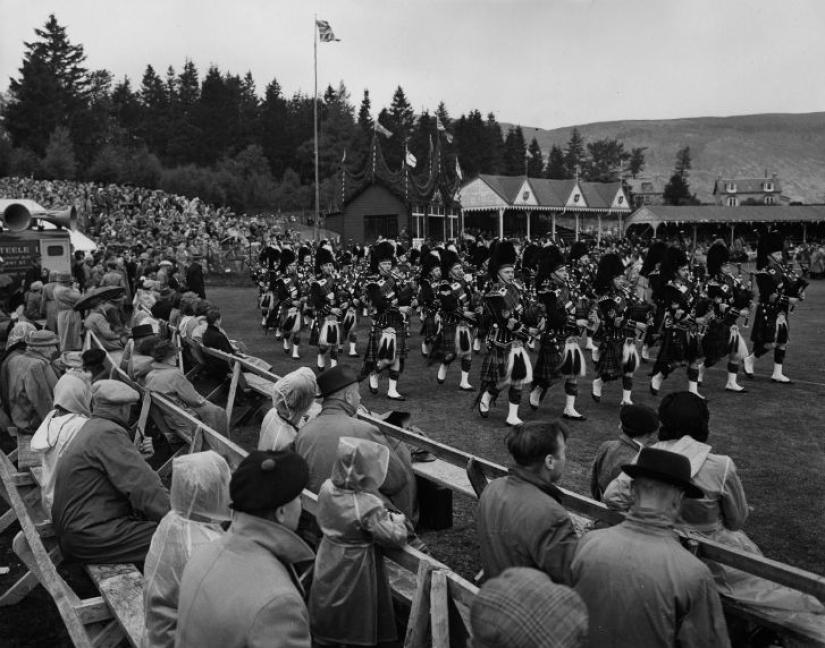
The Piper Ensemble opens the Games in Scotland, 1950.
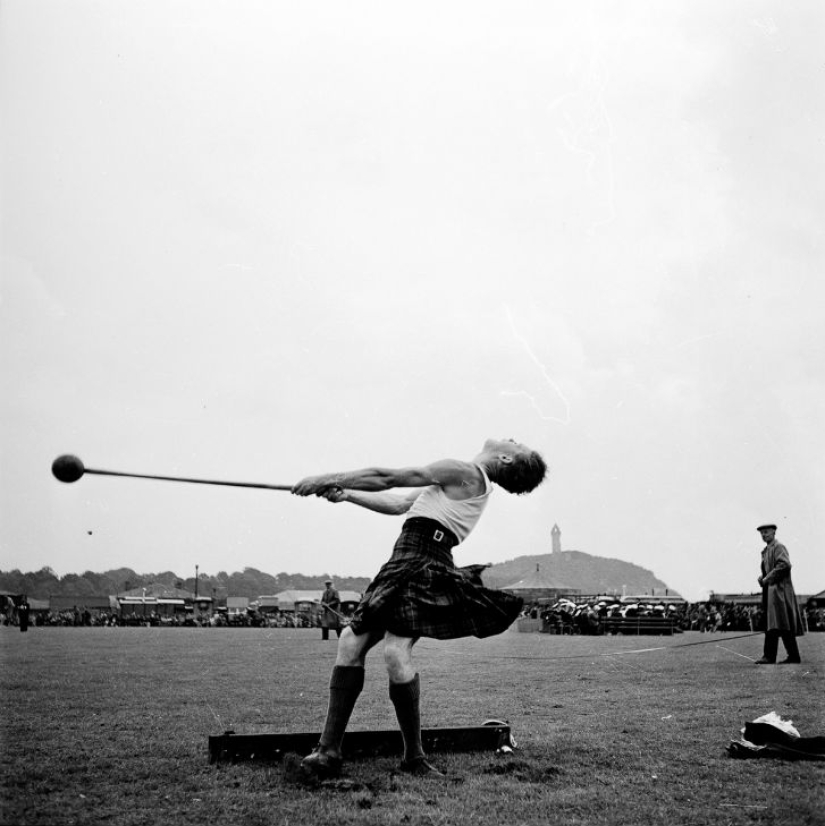
The photo shows a participant in the hammer throw competition, the progenitor of the modern athletics discipline. The projectile is a lead ball on a thin wooden handle. The weight of the ball is 7 kg, the length of the handle is almost a meter.
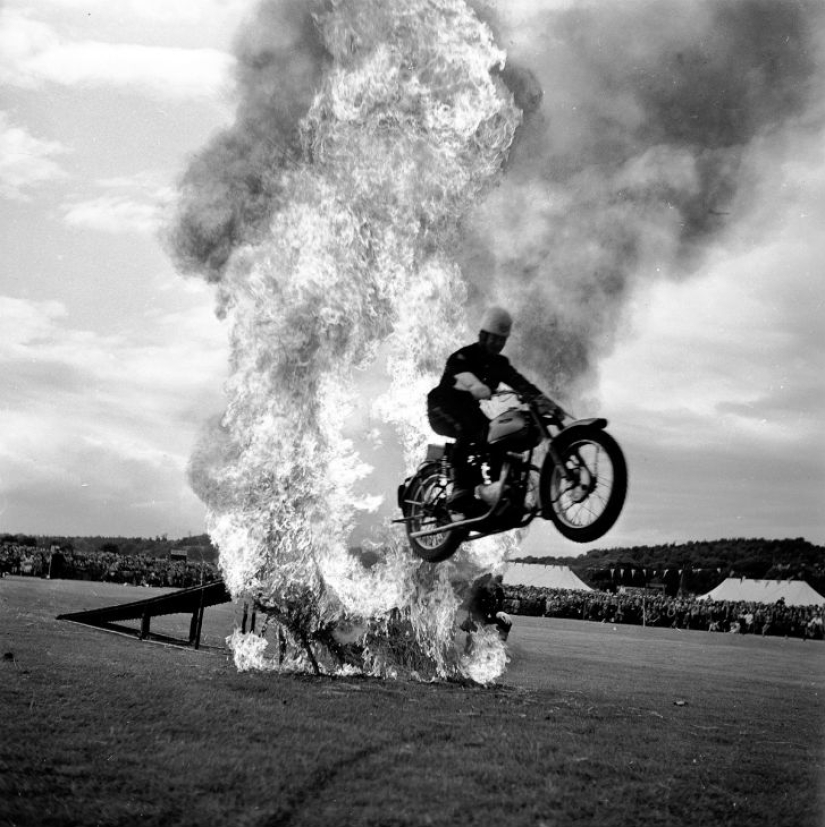
Performance during the Highland Games in Stirling.
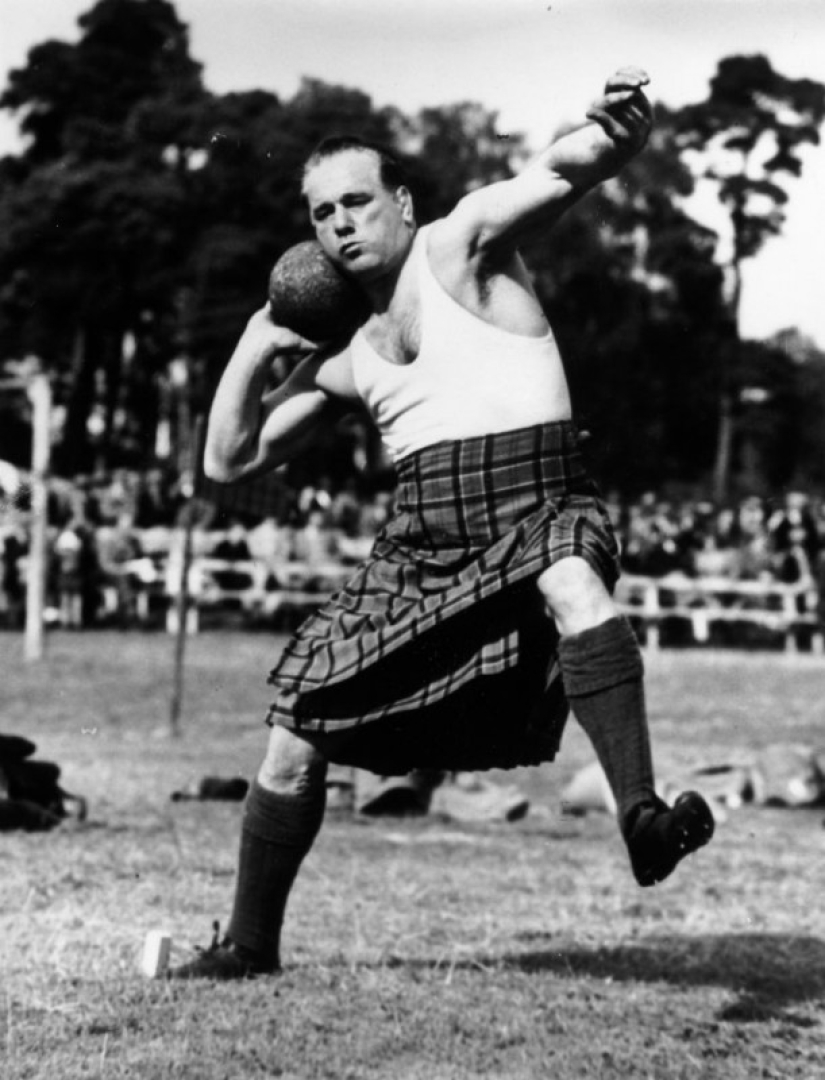
In the photo - pushing a stone. There are two varieties of this discipline at the Highlander Games: a stone of masculinity (a projectile or an ordinary cobblestone weighing about 45 kg) and a stone of strength (a projectile or stone weighing from 3 to 14 kg).
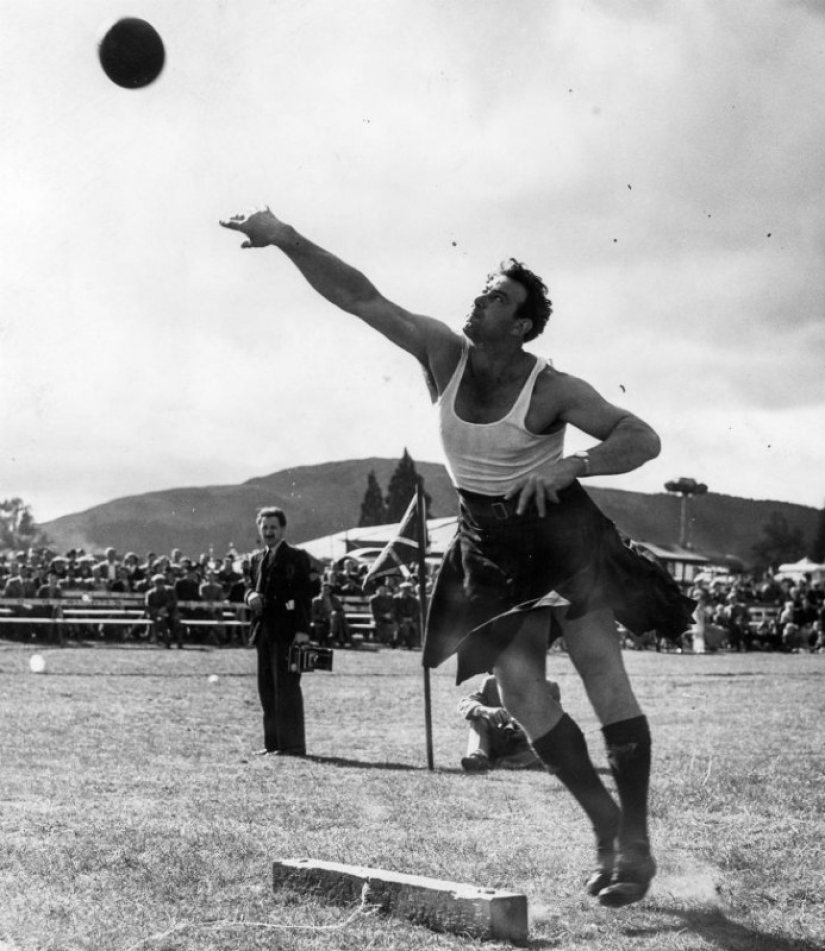
Stone pushing, 1952
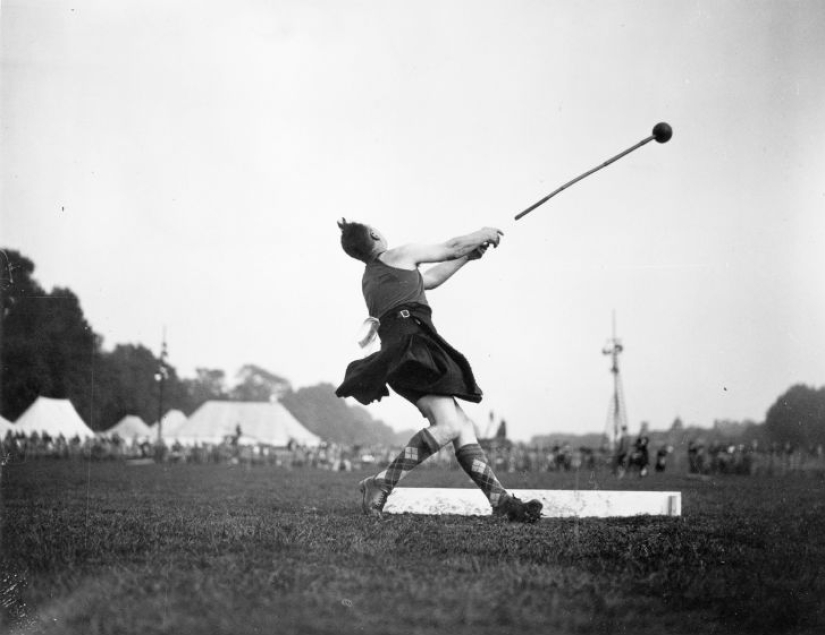
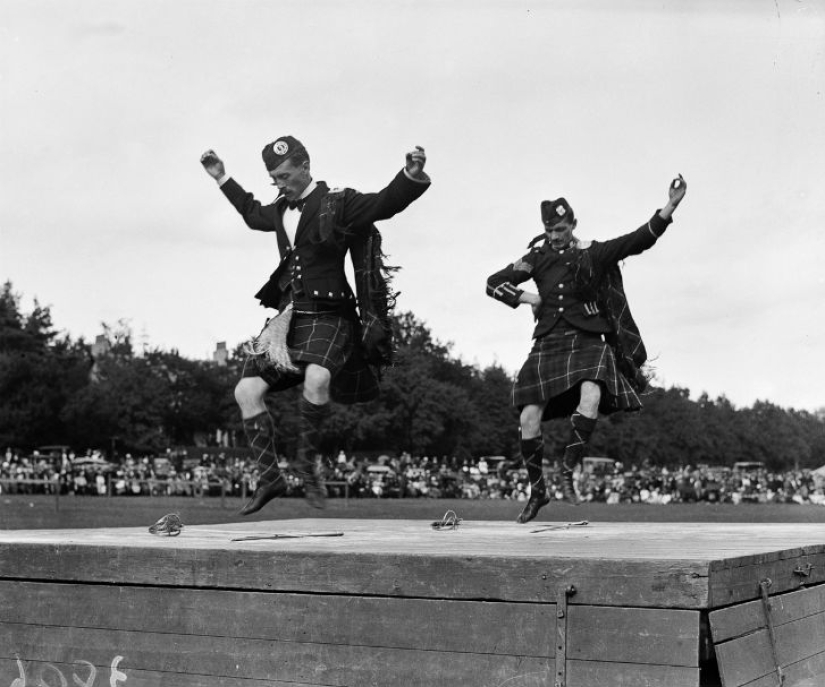
Sword dance, 1922
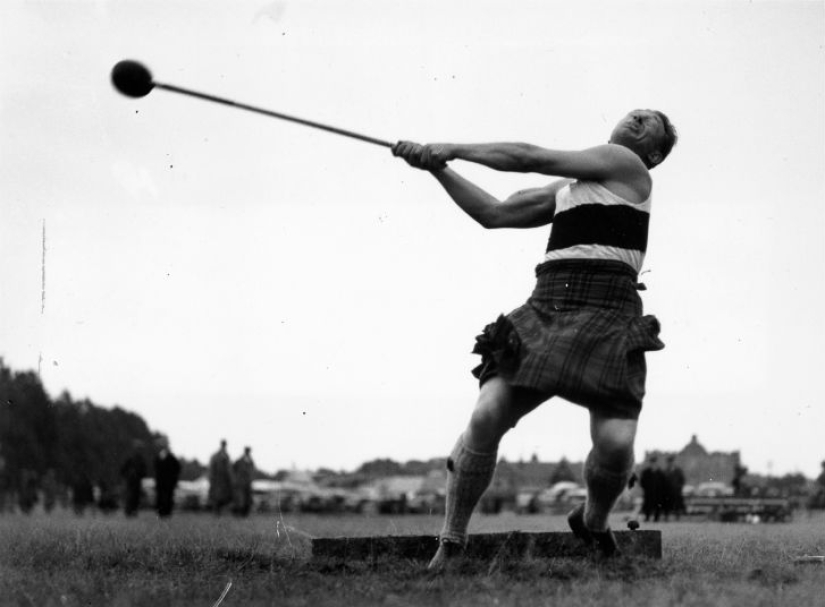
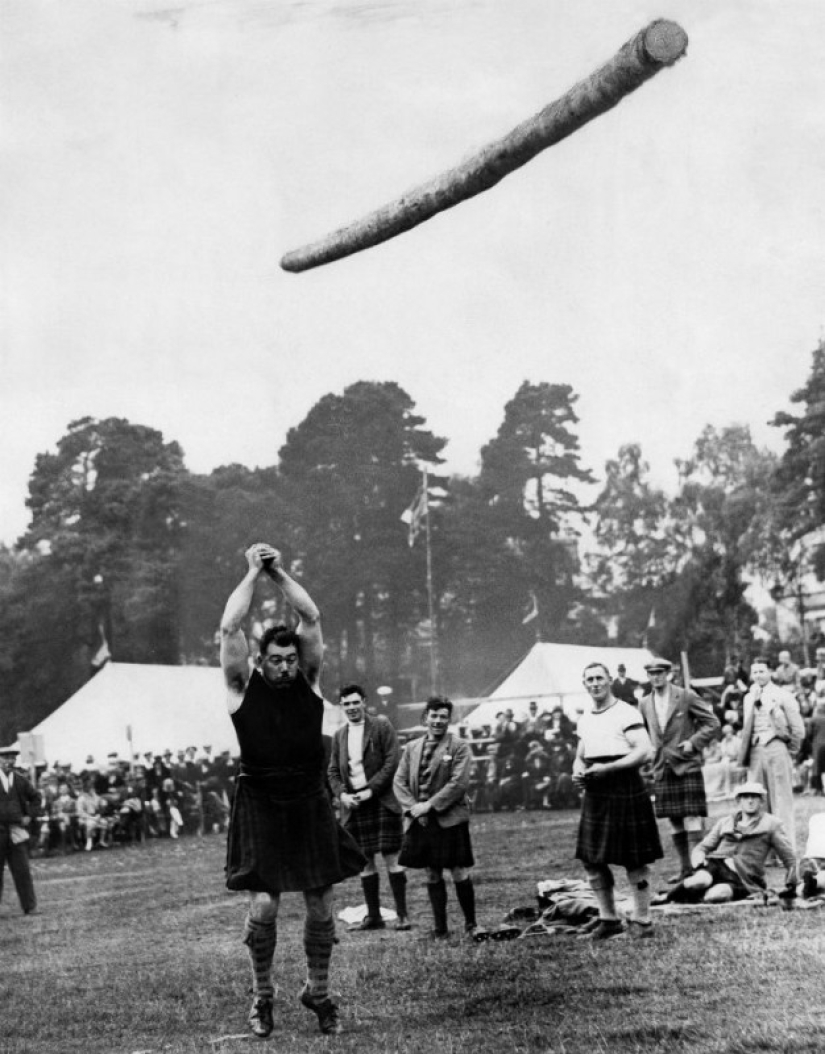
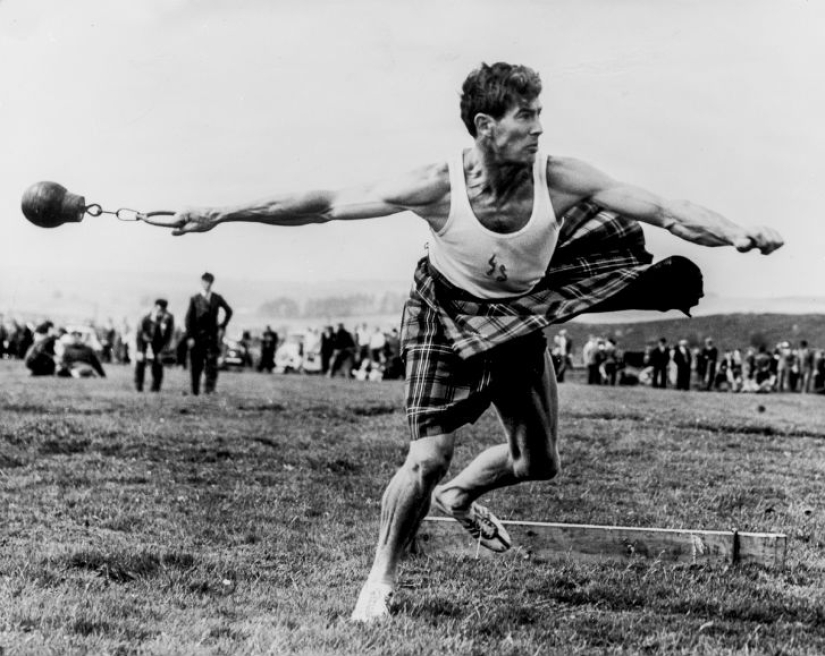
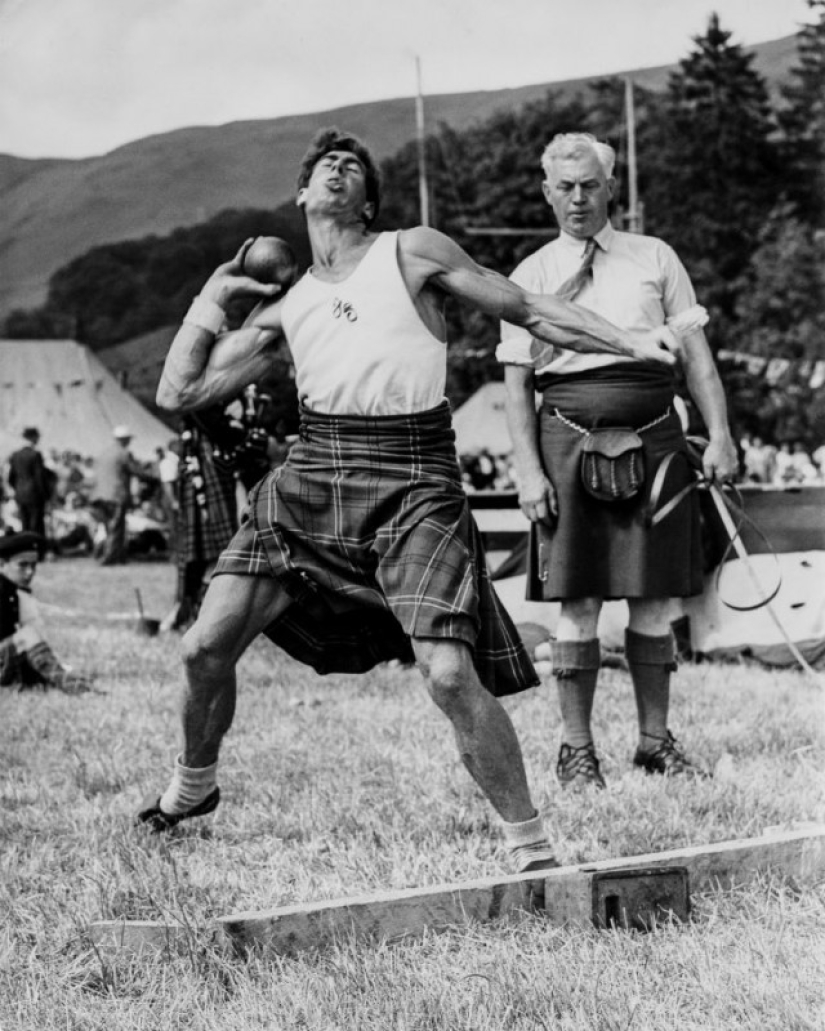
In 1955, Jay Scott from Lokha threw a 7 kg stone 12 meters.
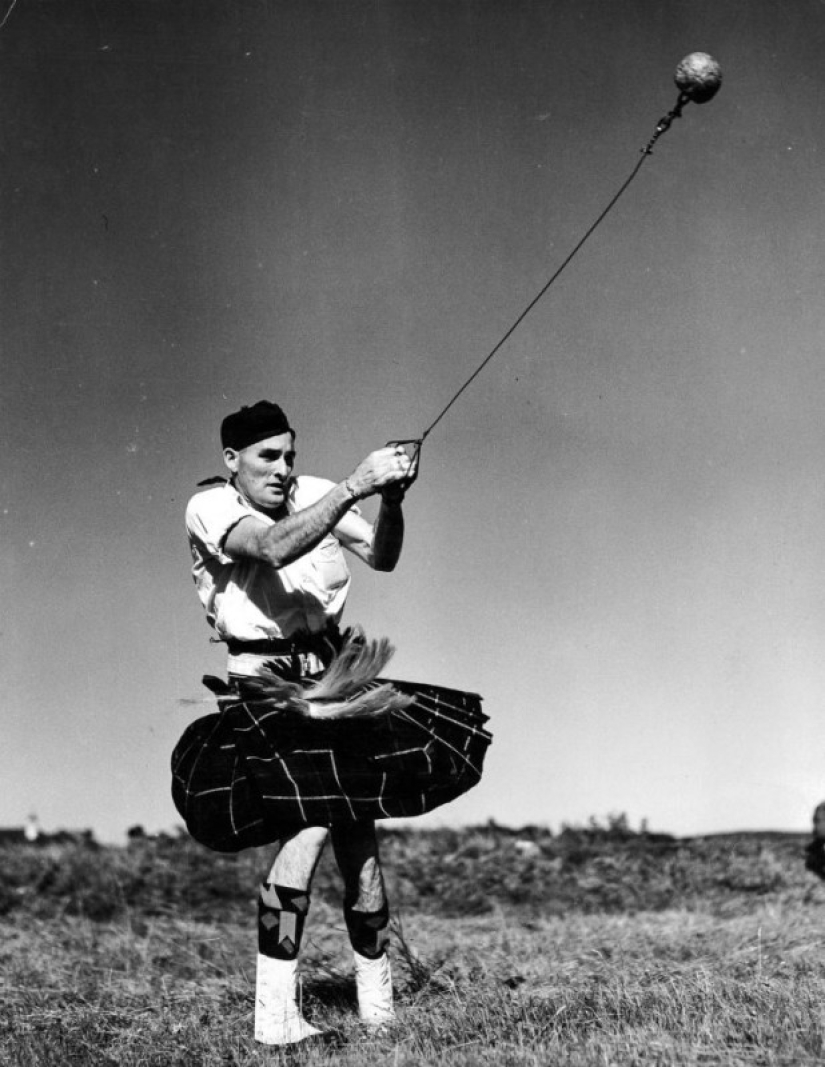
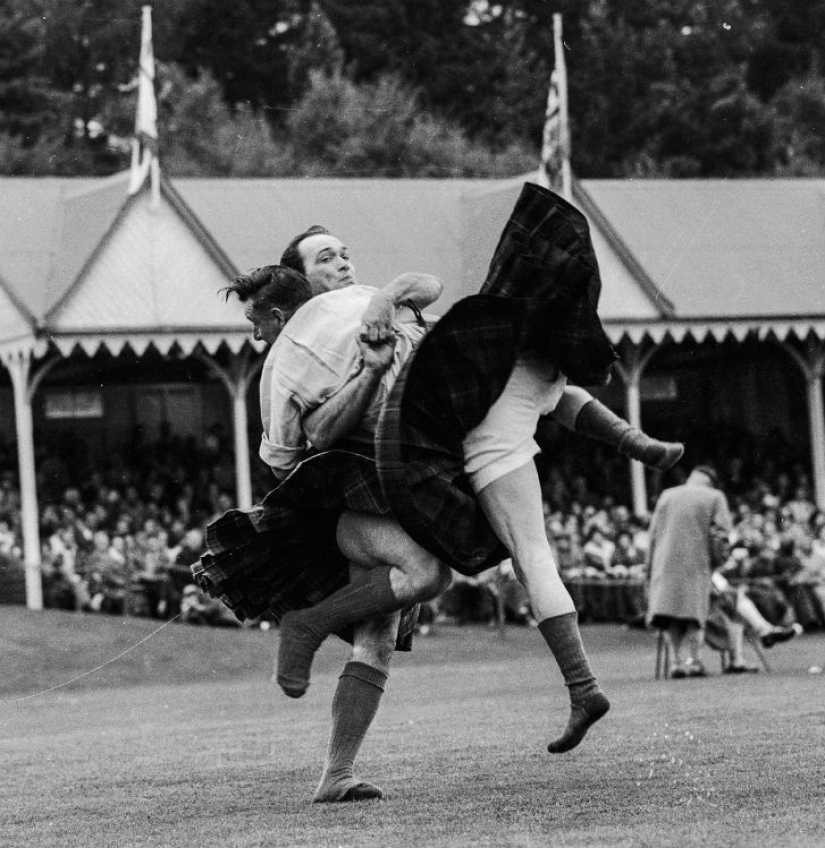
And of course, wrestling was among the competitions at the Highlander Games.
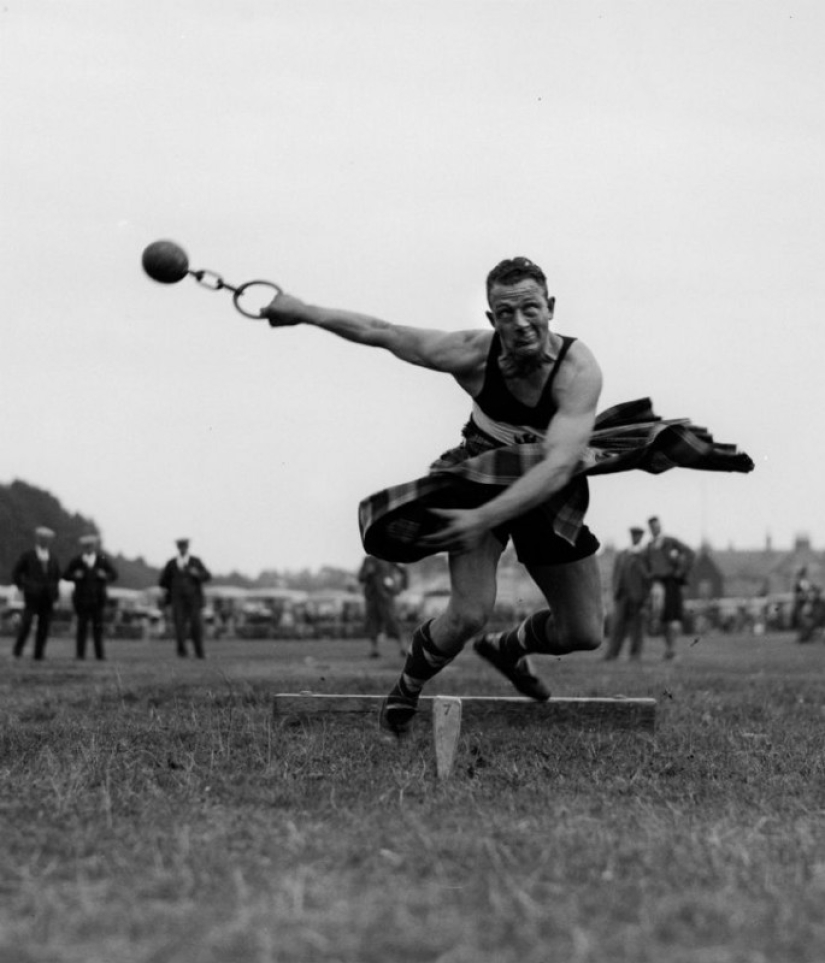
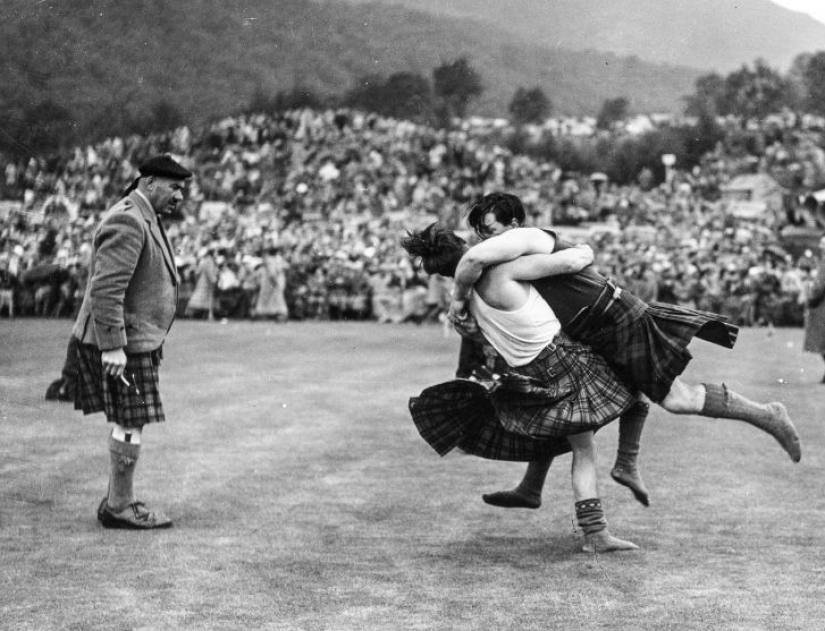
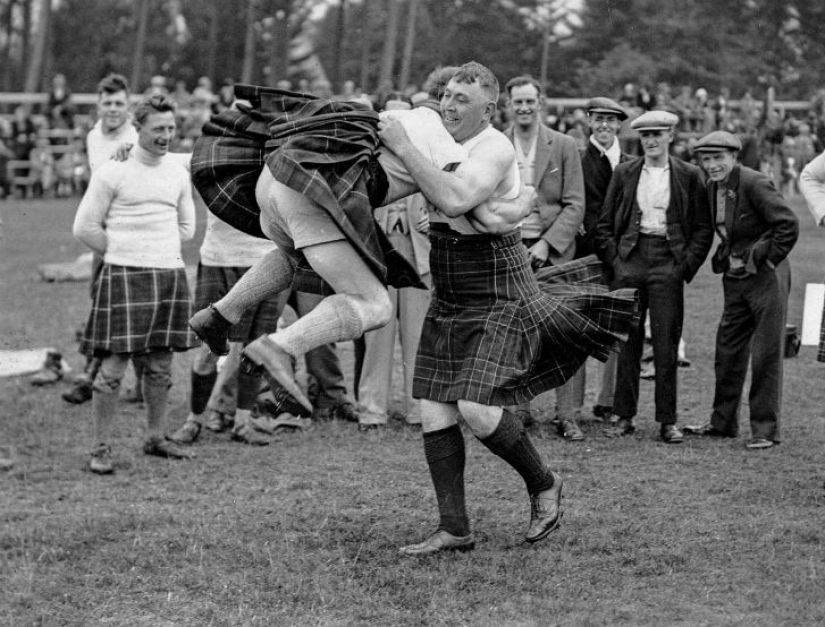
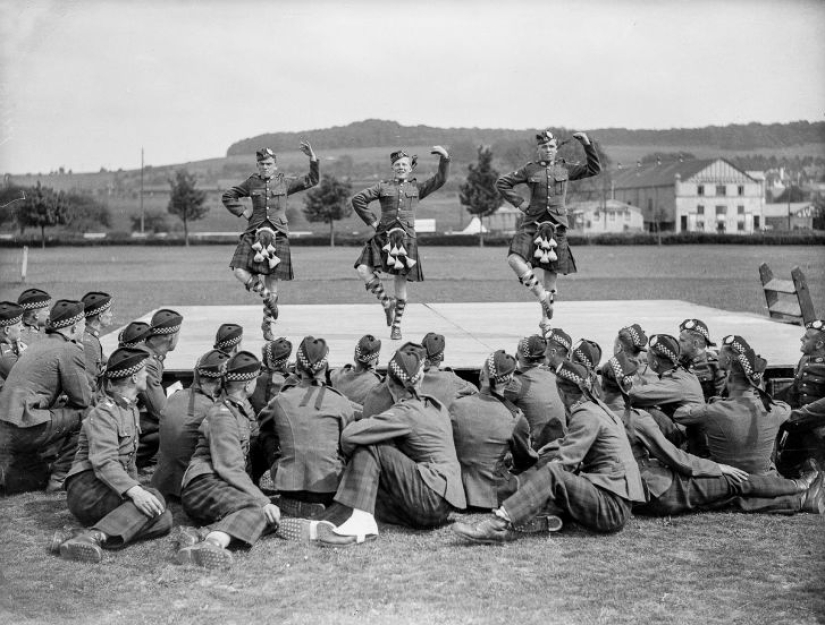
Highlander games in 1936.
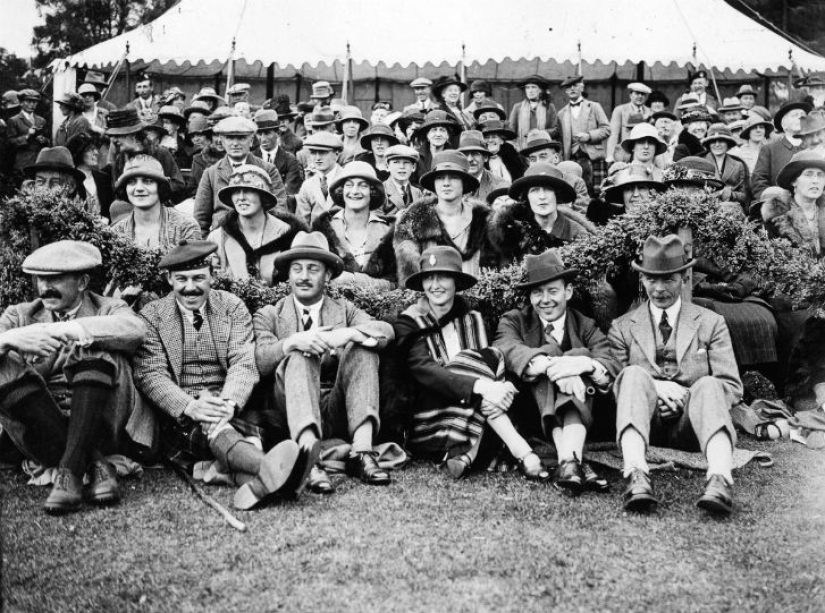
Spectators, 1935
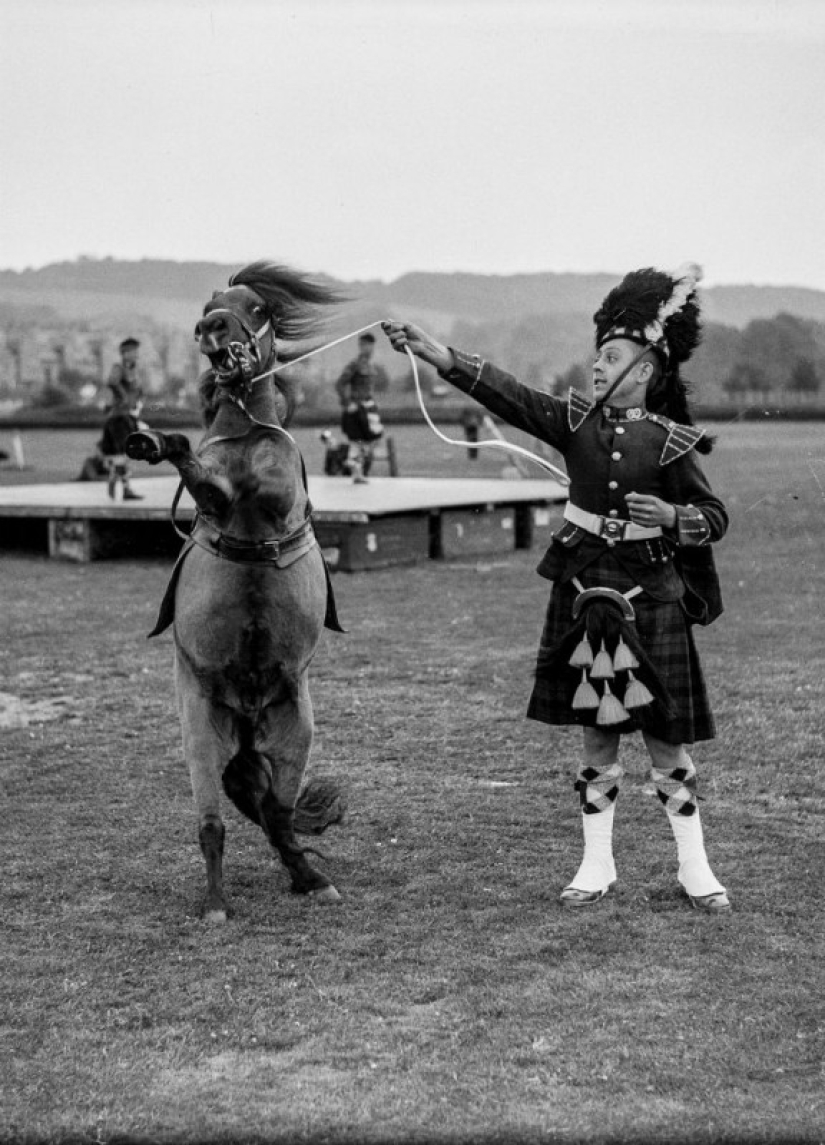
1st Battalion, The Argyll and Sutherland Highlanders of the Royal Scots at the 1936 Games.
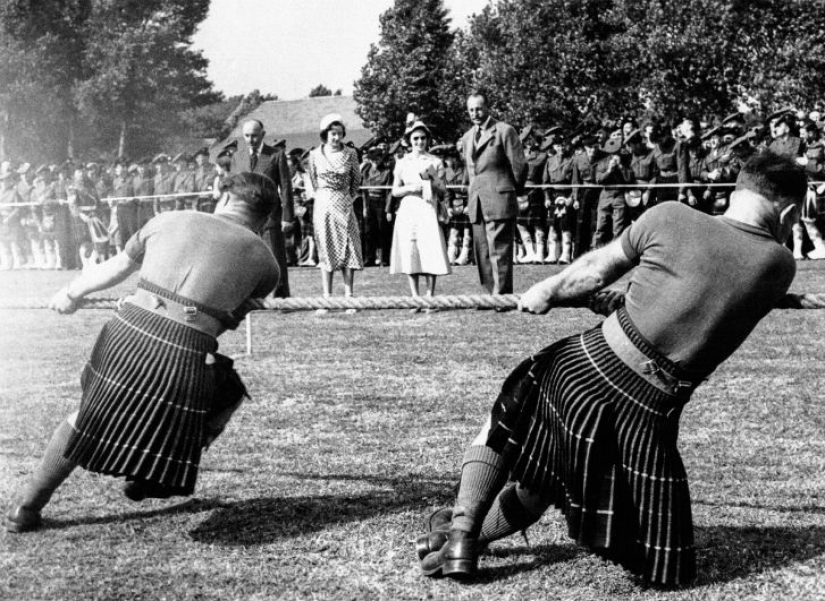
Princess Margaret, sister of the Queen of Great Britain, at the tug-of-war competition, 1957.
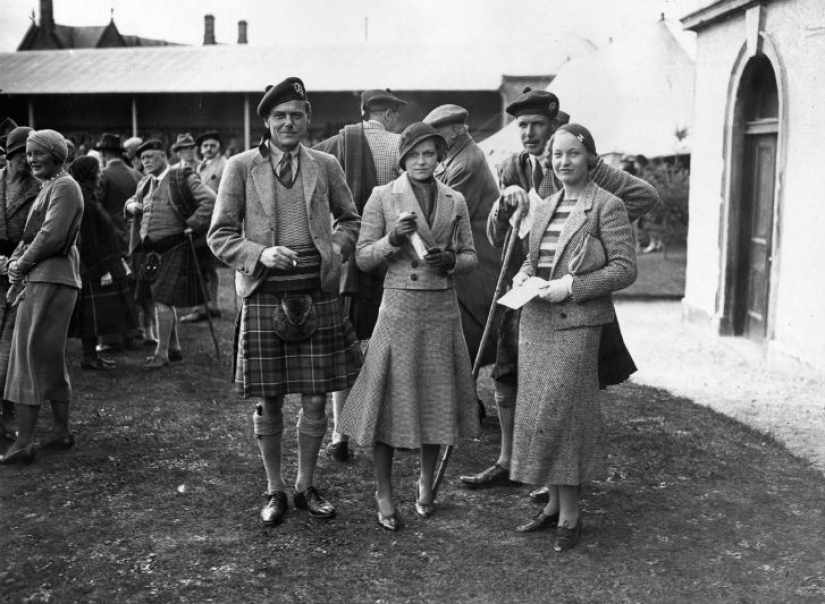
Spectators at the Scottish Games in 1932.
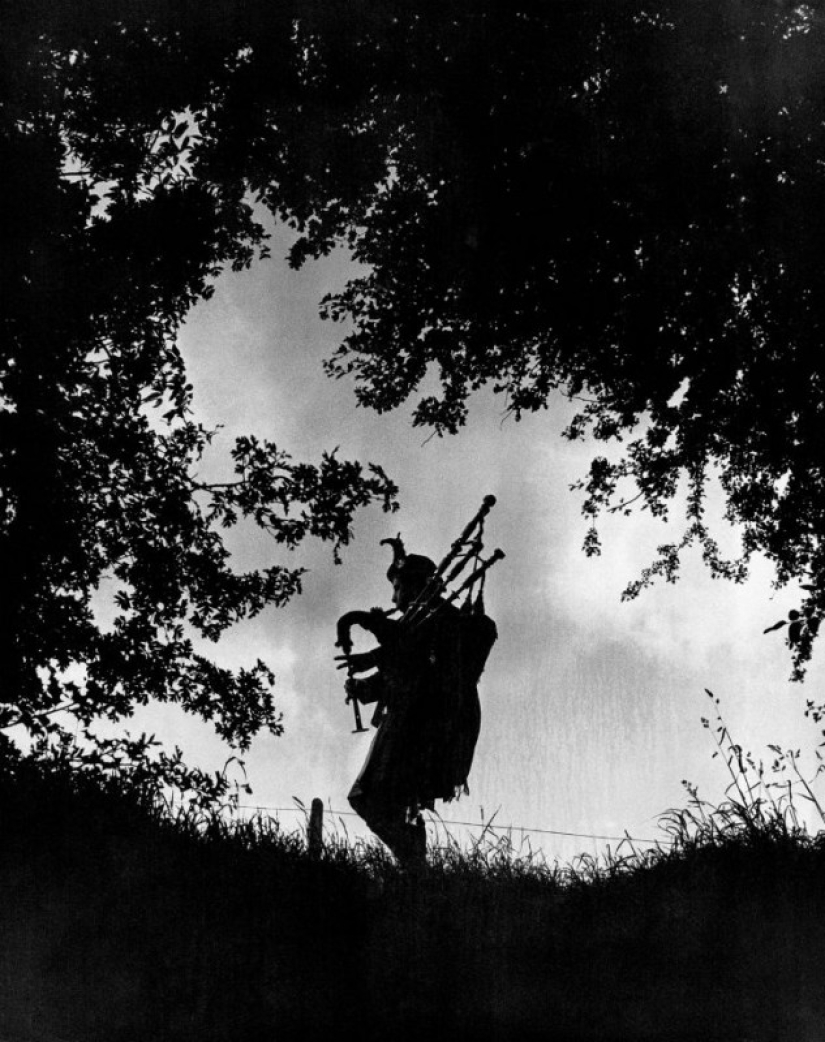
Keywords: XX century | Highlanders | Kilt | Strongman | Competitions | B/w | Scotland
Post News ArticleRecent articles

It's high time to admit that this whole hipster idea has gone too far. The concept has become so popular that even restaurants have ...

There is a perception that people only use 10% of their brain potential. But the heroes of our review, apparently, found a way to ...
Related articles

People have always been interested in what the future will look like and how modern technologies will develop. This was especially ...

Usually the kilt is used by the Scots as an outfit for a special occasion, and more often you can see men in kilts somewhere at a ...

Any crime leaves traces. This is an immutable truth, from which investigators and criminologists around the world start. A person ...

New Year's is a time to surprise and delight loved ones not only with gifts but also with a unique presentation of the holiday ...